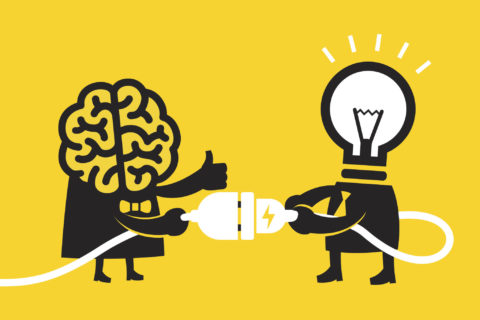With a few exceptions, market research looks very much as it did 10, 20, or even 30 years ago. Sure, some processes have been automated, and data collection has become more frequent. But there hasn’t been real technological impact – yet.
Currently, some companies are using Artificial Intelligence (AI) and its applications in a market research setting. But a lot of this is geared to simply doing things a bit better than we’ve done them in the past. While automation has lifted the burden of some of the routine work, research is still quite costly and labor-intensive. Data is coming in faster than ever, yet there is still a lag between collection and decision-making; we’re always looking slightly backwards. Insights are still being presented in static forms like reports and slide decks; dashboards are only just beginning to get a foothold.
And there’s another significant problem: the skills, knowledge, and insight that stay with research team members. If you’ve ever lost an experienced researcher, you know how hard it is to replace them. You’re not simply replacing a skill set – you’re replacing years of specialized understanding and experience.
In short, the current state of market research is falling critically short of being repeatable, reusable, and scalable.
How AI will transform market research
We’re not suggesting that AI hasn’t been applied to market research; we’re seeing some cases where machine learning, neural networks, natural language processing, and other subsets of AI are being employed. However, they are not being utilized to their true potential. For example, research collected for one project is typically only used for that specific business question. But imagine a market research environment where:
- Self-adapting surveys automatically modify, add, or drop questions based on that respondent’s answers.
- Insights are generated within seconds of data collection and processing.
- Research data is automatically combined with sales, IoT, behavioral, and passive data and used to power strategic and daily decisions.
- Business users can get insights and smart recommendations delivered to them automatically.
- Users simply ask business questions in their normal spoken language and get an instant, data-backed reply.
All of these are possible with today’s technology. Not all of them are widely used, but all could be a reality. Two factors are driving this possibility: algorithms and impact.
Shifting from rented skills to available algorithms
Algorithms can be used to create research designs based on analytical frameworks. They can craft questionnaires, analyze data, and extract insights. They can be programmed to factor in the relevant business context. In other words, they can do some of the things done by experienced market researchers. These algorithm “skills” are still in the development stage, but given technology’s relentless growth, we can expect them to surpass the average human researcher in time.
What does this mean for the future of market research? Instead of depending so heavily on expensive and time-consuming human research, companies will build or rent algorithms to do these tasks. Once an algorithm is built, it “learns” from its own performance and becomes more effective. And one algorithm can be applied to several new questions fairly easily.
This shift will improve the scalability of market research, giving greater value throughout an organization. And while there will be an advantage to having superior algorithm-building skills, even small and medium businesses will be able to “rent” algorithms. This will give them access to research skills that have traditionally been available only to large companies.
How AI will increase market research’s impact
We mostly use market research in two areas: monitoring customer-related KPIs and informing strategic decisions. Day-to-day operations typically don’t see much impact from market research – mostly because the granularity of market research data is not a good fit for these decisions. Also, this data is not as frequently updated, nor is it delivered in a way that decision-makers need.
However – and this is current, not just hypothetical – some organizations are including market research data in their daily decision-making process. The primary driver behind this trend is the fact that AI-powered market research can quickly be delivered and integrated with other data sources (e.g. social, sales, behavioral, etc.). In turn, this amalgamation more accurately mirrors market conditions, which can be liable to lightning changes.
The above process can happen within minutes of data collection. By combining the very latest market research data with other non-traditional sources, leaders can get a complete and comprehensive view of their current market conditions. As you can imagine, this kind of speed opens up a significant competitive advantage. It also shifts the marketing gaze to the future rather than focusing on the past weeks or months.
So, in these two ways – figuring research data into daily operational decisions and increasing the speed and comprehensive view of data-driven insights – we can see how AI will create a much fuller use for market research. This will lead to fast, wide, and lasting impact on business decisions.
AI is the future of market research
Market research used to be firmly in the realm of strategy, answering the “why” of consumer behavior. With AI, it’s evolving into a broader usage. We’re seeing market research’s debut as a tactical tool, answering “what” and “how” as well as “why”.
In the future, look for AI-powered market research to be faster, more efficient, and more scalable, as algorithms take on some of the roles of the human researcher. We expect the focus of marketing research teams to center more on understanding how to incorporate different data sources and how to use algorithms to effectively produce specific insights instead of general recommendations. We’ll see human research teams free to do more of what AI cannot do: tell stories, add value beyond actual business questions, and find insights beyond what AI can produce.
Big change is coming to the market research world. Some people may not want to hear that, but many organizations will welcome research that’s faster, cheaper, and more available regardless of business size. Market research professionals who accept and adapt to this change will be able to help their clients or companies thrive in a world where market research has changed forever – and for the better.
This content has been published initially on the Absolutdata website.



2 comments
There is so much to love about using AI in marketing research. With our AI, voice-assisted interviews, we’ve seen them make the research process much more engaging and much more accessible to participants. And because AI facilitates much larger sample sizes, our linguistic experts and ethnographers have vastly more data to work with ensuring that the results are more representative and actionable.
Excellent insights into how AI/ML is being leveraged by marketing research today!